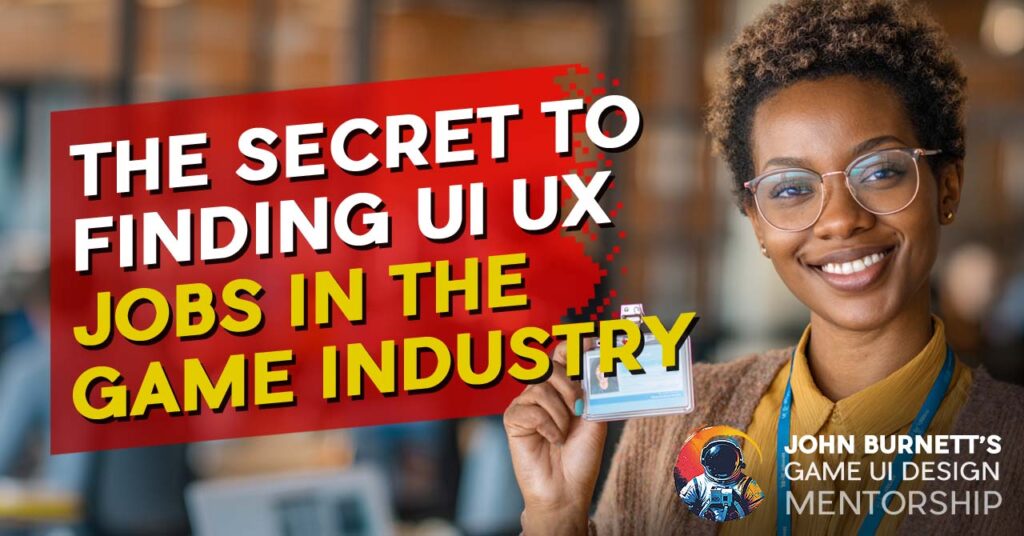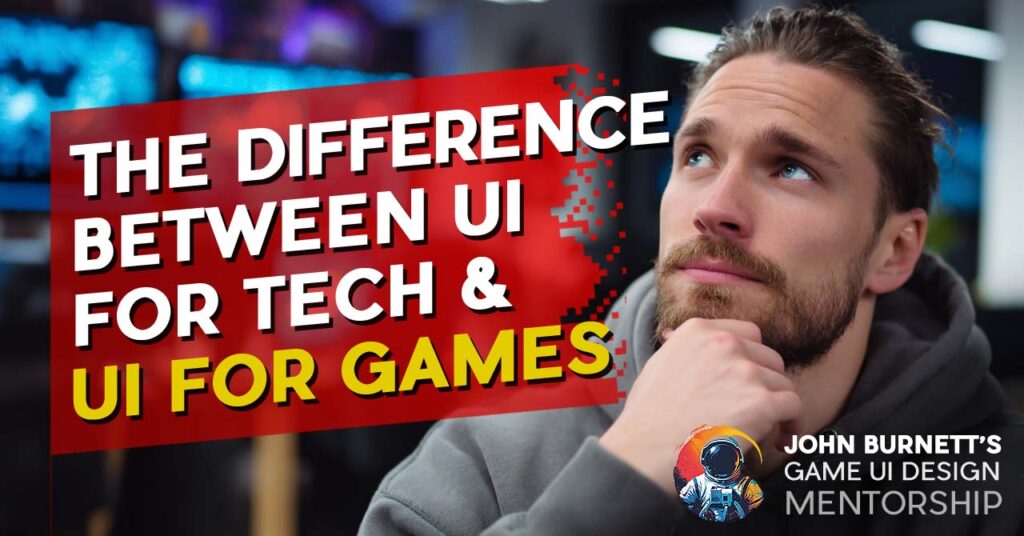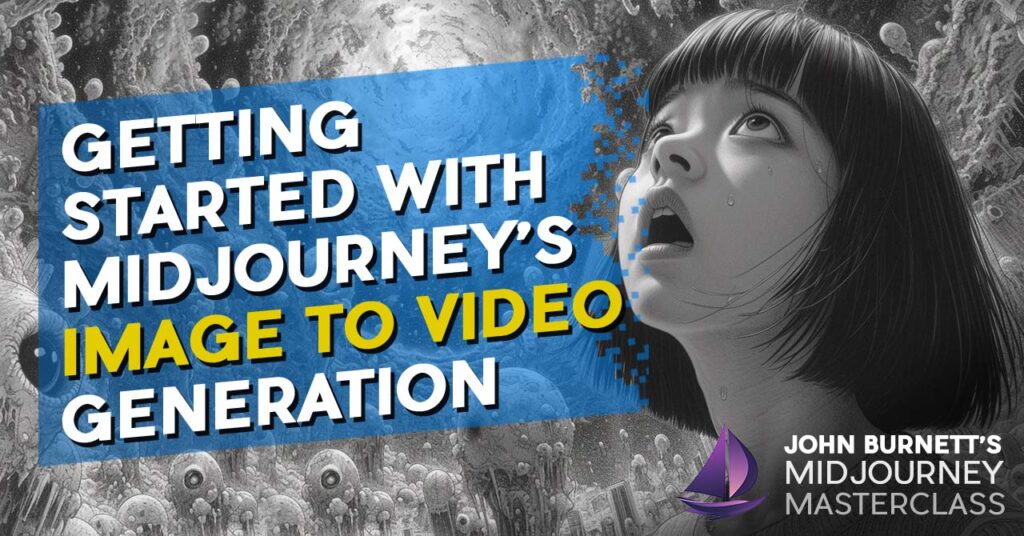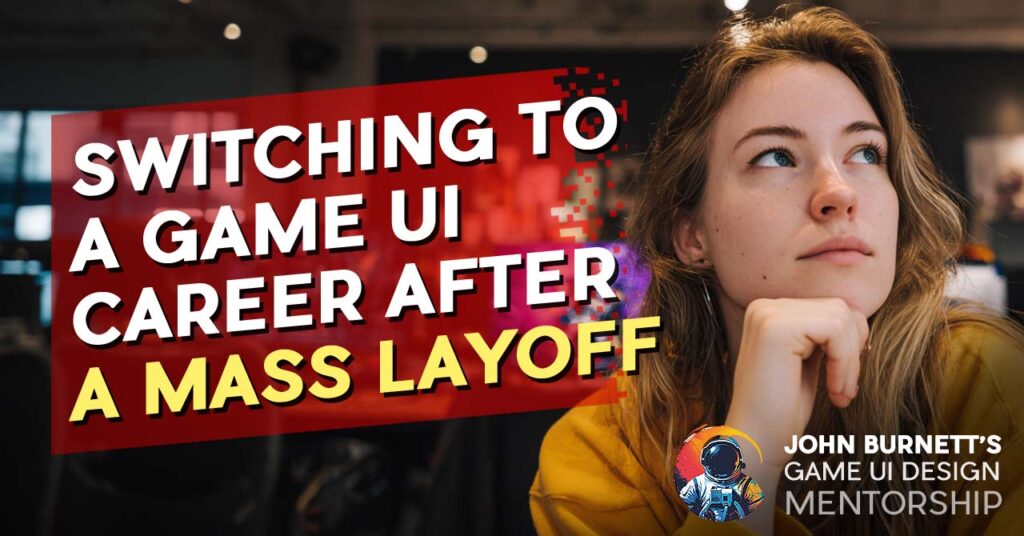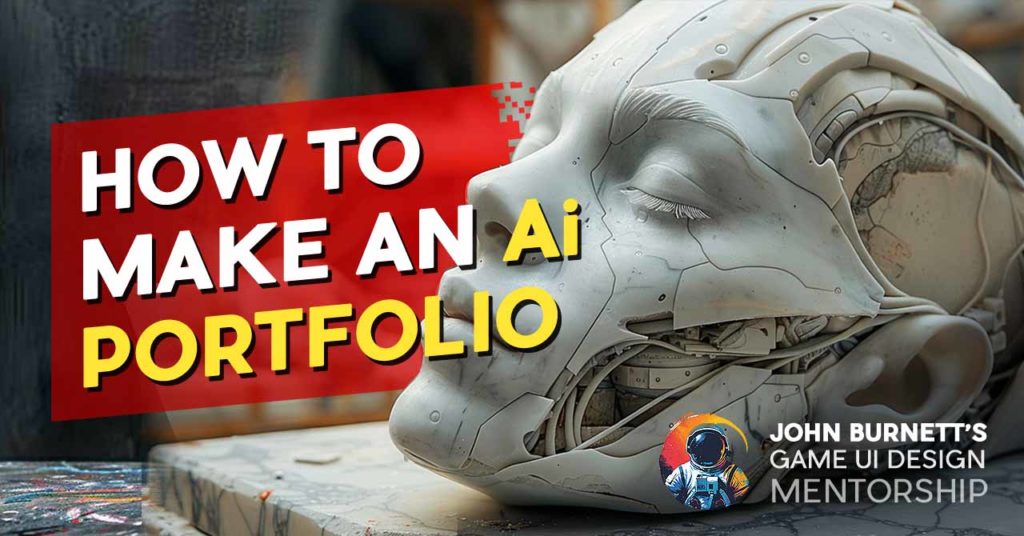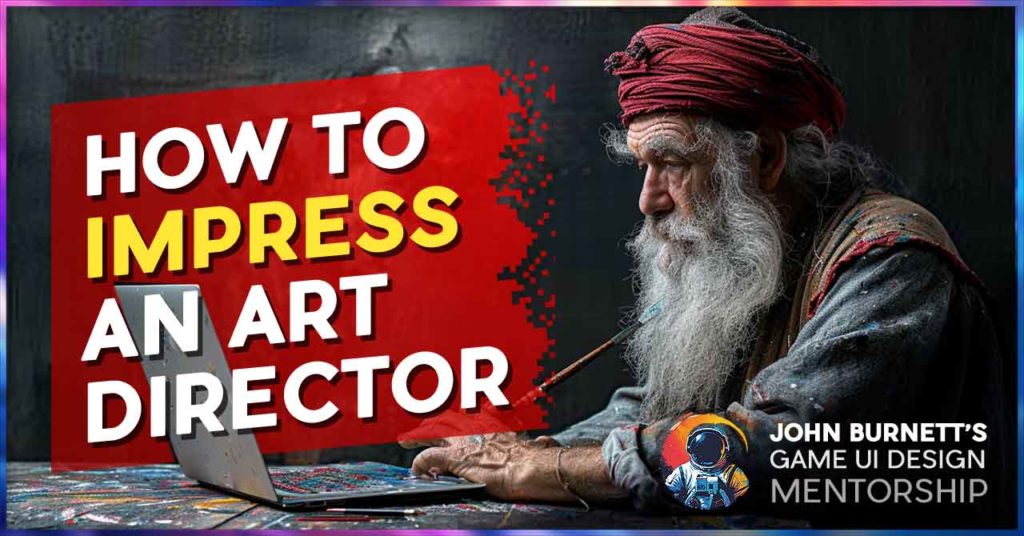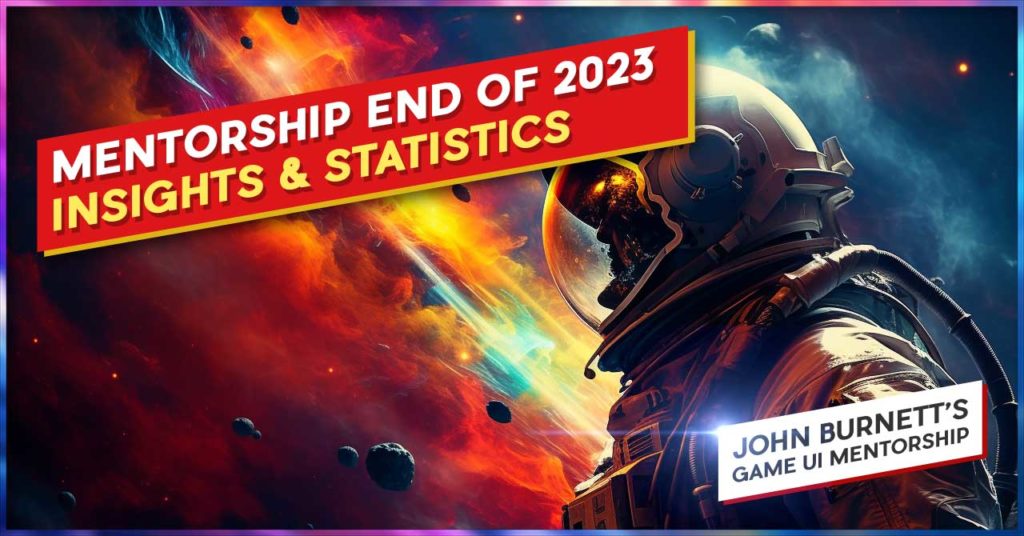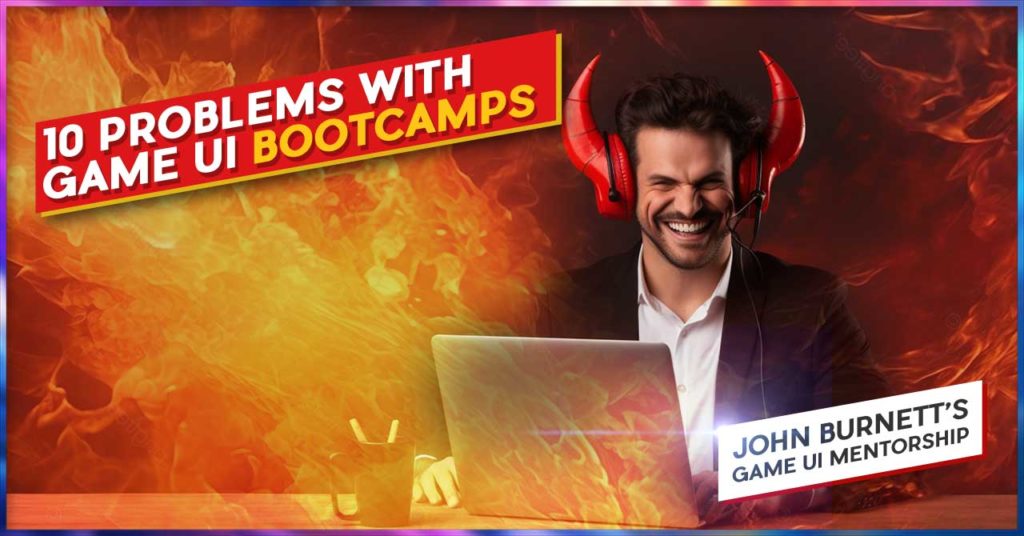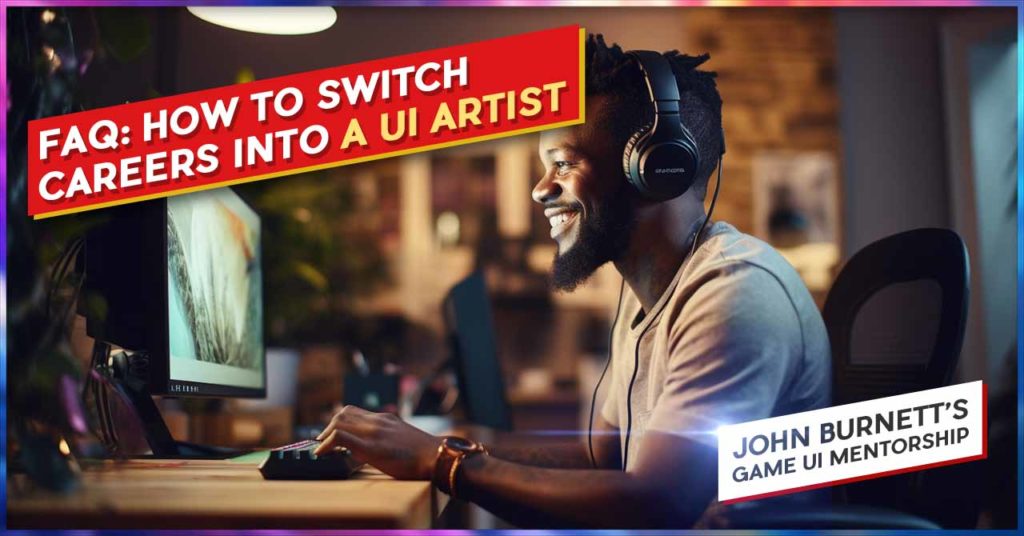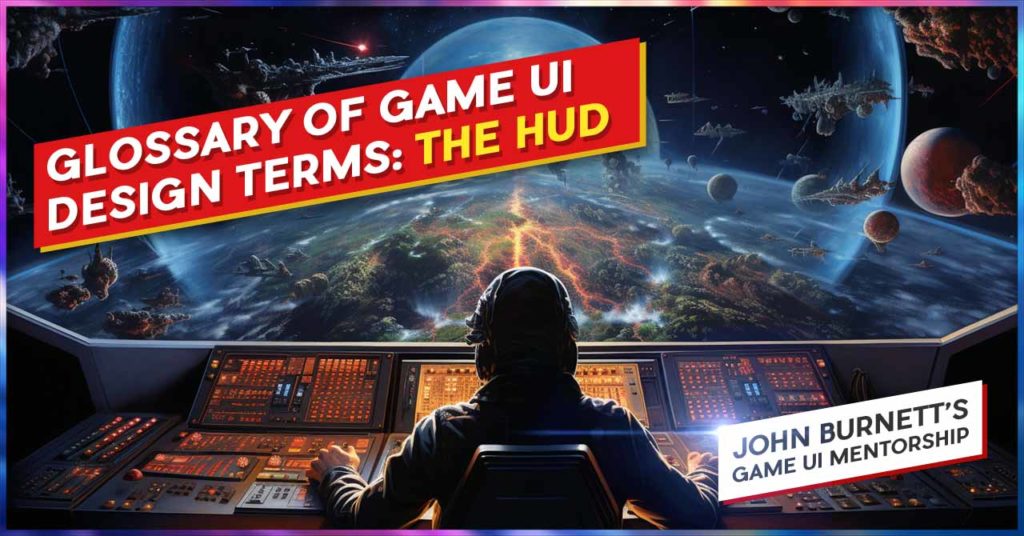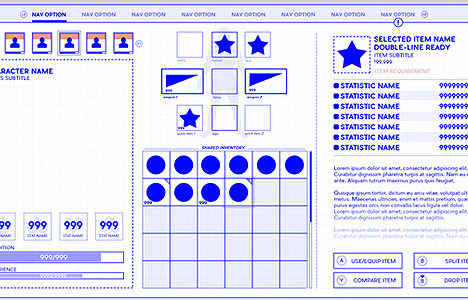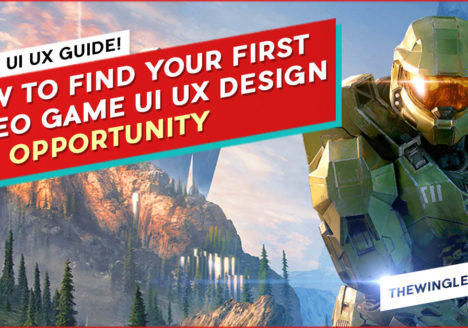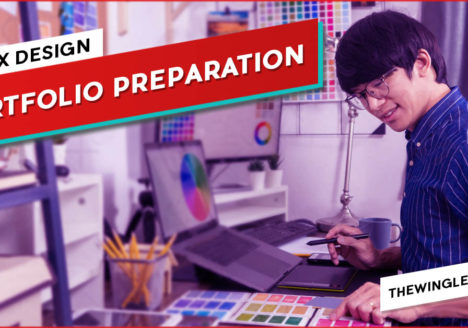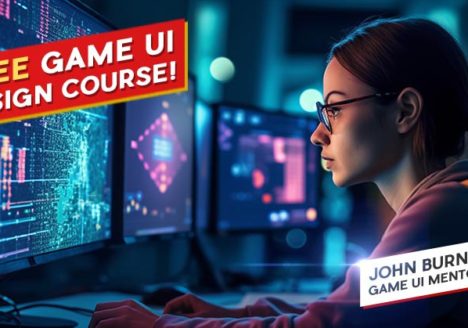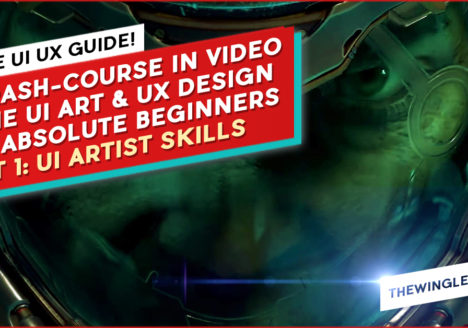10 Reasons to Avoid Game UI UX Bootcamps
FREE GAME UI UX DESIGN RESOURCE
10 REASONS TO AVOID GAME UI UX BOOTCAMPS
 By John “TheWingless” Burnett
By John “TheWingless” Burnett
Game Art Director, Senior UI Artist, Remote Game UI Mentor
Need 1-on-1 help with your Game UI Portfolio? Join my exclusive Game UI Design Course!
10 REASONS TO AVOID GAME UI UX BOOTCAMPS
FREE GAME UI UX DESIGN RESOURCE
Ooooh! John, are you throwing shade?
I am. I am – just at a methodology, not at any one person or institution (it looks like that position is already taken!)
In recent years, the demand for skilled Game UI Designers has surged, leading to the proliferation of Bootcamps promising a shortcut to a successful career in this incredible field among incredible dorks. But Bootcamps, as a general practice, just don’t work. Certainly not in the field I’ve been a part of for nearly 20 years. In this blog, we’ll explore ten compelling reasons to approach Game UI Bootcamps with caution… if at all!
Before we get started, let’s get some operational definitions going:
- Bootcamp: A short, intensive training program focused on practical skills, often with a specific outcome or certification.
- Cohort: A group learning experience, typically following a set curriculum with shared milestones.
- Mentorship: What I do around here. A one-on-one relationship guiding and supporting the growth and development of another.
Alright? Everybody all squared away? Okay, let’s get to that list of 10 shade-throwing reasons to avoid Bootcamps.
Lack of In-Depth Learning
Game UI Bootcamps are often praised for their speed, promising to turn novices into experts in a matter of weeks. However, this rapid pace can come at the cost of in-depth learning. Designing effective and engaging game interfaces requires a nuanced understanding of both design principles and user psychology, aspects that might be overlooked in an accelerated curriculum. For example, they probably can’t do a deep dive on hyper-focused subjects like How To Improve Your Inventory Screen.
–
–
Limited Industry Exposure:
Bootcamps are structured to provide quick results, but they might sacrifice industry exposure in the process. Game UI design is highly collaborative and requires an understanding of how your work fits into the broader game development process. For example, they may never cover how the Creative Director, grandmaster of the game, can talk to you directly instead of through the Art Director. A traditional Bootcamp might not ever delve into the mundane-yet-vital exploration of the day to day. Bootcamps might not offer the depth of industry insight that a more extended program or traditional education could provide – leaving you at the mercy of Mentorship students who DO know.
–
–One-Size-Fits-All Approach:
Bootcamps often follow a standardized curriculum to accommodate a diverse range of learners. While this approach aims to cater to everyone, it may not account for individual learning styles and pace. If something pops up, as real life always has a habit of doing, you are screwed and your money is gone. Mentorship’s allow for elastic timelines and lots of sighs of relief when the unexpected happens. I actually had a mentee who’s dog got bit by another dog 10 minutes before class. We simply moved the class back just for her (dog’s fine, btw!). Personalized learning is crucial in design education, and the one-size-fits-all model can leave some learners behind – especially those with busy schedules.
–
–Overemphasis on Tools:
Game UI Bootcamps might prioritize teaching specific design tools over foundational design principles. While proficiency in tools is essential, it’s equally vital to understand the why behind design choices. If they lean heavily into Figma-this (nobody uses Figma for console dev!) and Adobe XD that, but don’t fill you with methodology, they’re setting you up to fail. Overemphasizing tools may hinder the development of critical thinking and problem-solving skills, crucial in the ever-evolving landscape of game design… says the man who is steeped in Flash lore and know-how!
–
–Limited Networking Opportunities:
Networking is a cornerstone of success in any creative industry. Bootcamps, with their swift timelines, may not provide sufficient opportunities for students to build connections within the industry. While networking with your Bootcamp crew is crucial, it still only opens the door to… you know… non job-givers. Everybody in the industry has a minor variation of the same story: most of our jobs came from referrals. Networking helps in securing internships, mentorships, and job opportunities, which are often as crucial as the skills acquired during Mentorship programs… but rarely in Bootcamps.
–
–High Financial Investment:
Game UI Bootcamps often come with a hefty price tag. While they promise a fast track to a lucrative career, the return on investment may vary. Remember all the points addressed above, especially how if you miss one class, that’s on you? That’s an investment of yours that was wasted through no fault of your own – endemic in all Bootcamps. It’s essential to carefully weigh the costs against potential career gains, especially considering that Mentorships may offer a more cost-effective route.
–
–Quality of Instruction:
The quality of instruction in bootcamps can be… inconsistent. Instructors may lack extensive industry experience, leading to a gap between what is taught and what is needed in the real-world game design environment. From the Bootcamp’s perspective, it’s vital they appear to have an endless stream of industry insiders, but the reality is many of these people were severely exploited to push the Bootcamp’s prestige. It’s a numbers game for some Bootcamps, not a quality issue. It’s crucial to thoroughly research the qualifications and backgrounds of instructors before committing to a bootcamp. At least with a Mentorship, you can do a deep dive on a single person!
–
–Limited Portfolio Development:
Game UI Design is a portfolio-driven field, full stop, and a strong portfolio is infinitely more valuable than a Bootcamp certificate. Bootcamps might not allocate sufficient time for students to develop a diverse and robust portfolio, which is essential for standing out in a competitive job market. If you’ve spent thousands upon thousands of dollars to not even have over-the-shoulder guidance on the most important part of your career, then what was the point? By the way, if you’re just starting out, here’s a free guide on what Junior mistakes to avoid in your Game UI Portfolio.
–
–Inadequate Post-Graduation Support:
While some bootcamps boast impressive placement rates, the support you receive post-graduation can be spotty at best to outright exploitive at worst. It’s crucial to understand the extent of support provided, including career counseling, resume building, and interview preparation. Without adequate support, graduates may struggle to transition into the professional realm. Also watch out for guarantied job placements, these are always a red flag that indicate a sweatshop arrangement with several studios, or a fleet of lawyers to change what “guarantee” means.
––
Potential for Burnout:
The accelerated nature of bootcamps can lead to burnout, especially for those new to the field. Sometimes the Bootcamp feels too rigid and full of canned material. Sometimes you may feel utterly alone in a crowd of 20 people learning the exact same art, the exact same way (good luck standing out!). The intense workload and tight deadlines may hinder the absorption of essential concepts, leading to frustration and exhaustion. Mentorships tend to start with your emotions and comfort first, and a class is built from the inside on out. Much preferrable if your career stems from your creative self!
CONCLUSION
Game UI Bootcamps undoubtedly offer a fast-track route to entering the exciting world of game design. However, it’s crucial to approach them with a discerning eye, considering the potential drawbacks highlighted in this exploration. Now, I meant what I said at the drop: I don’t mean any shade and don’t want to call any person or industry out… But Aspiring game UI designers should weigh their options, considering factors such as individual learning style, financial investment, and long-term career goals before committing to a bootcamp. While these programs can be a quick stepping stone, a comprehensive and thoughtful approach to education, with the best choice being a 1-on-1 Mentorship, clearly yields the most enduring success in the competitive field of Game UI Design.
